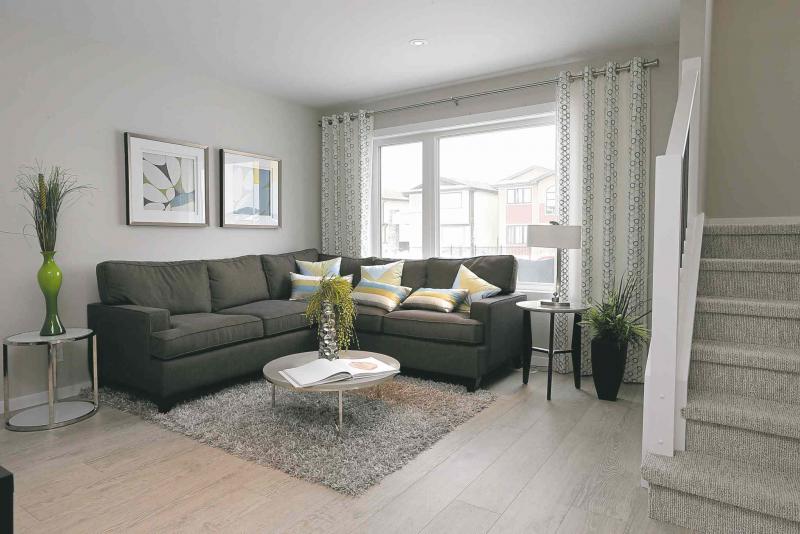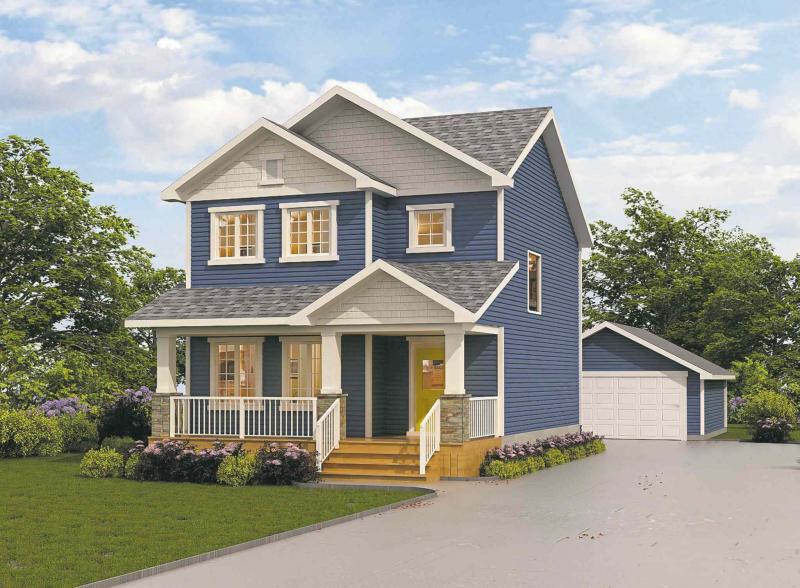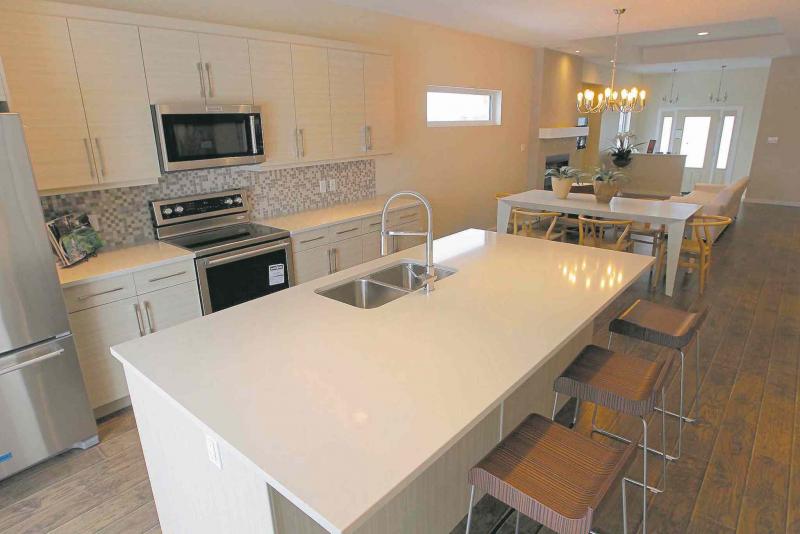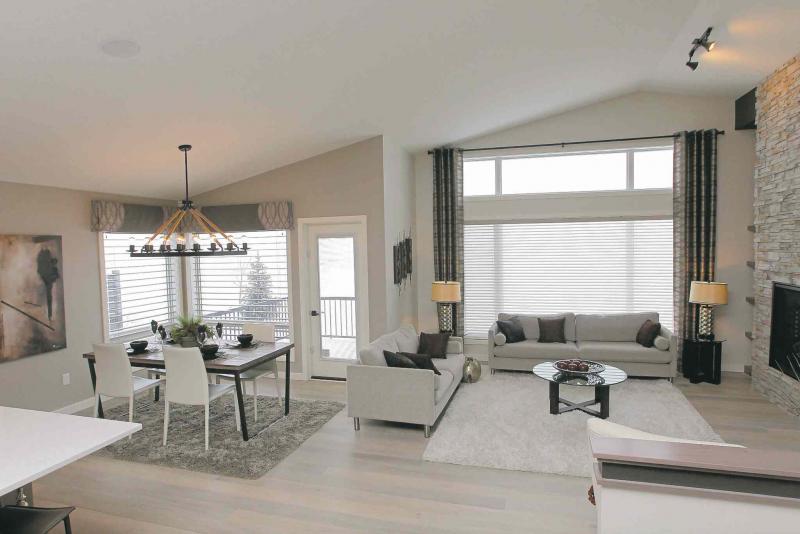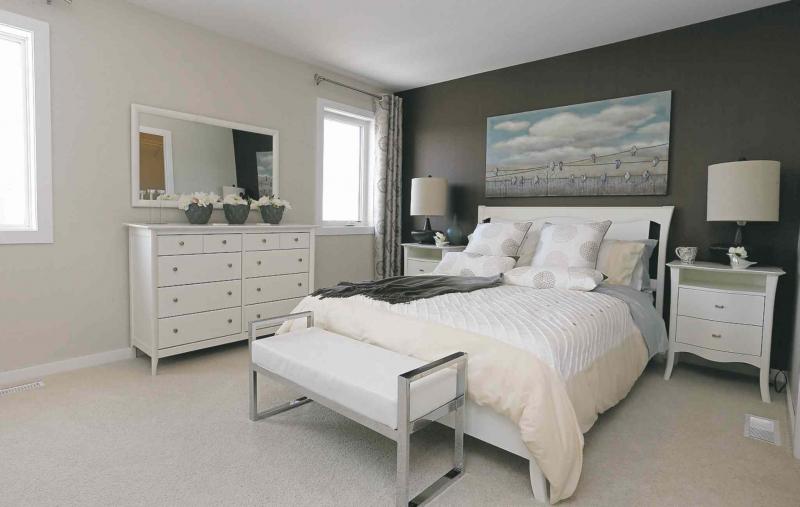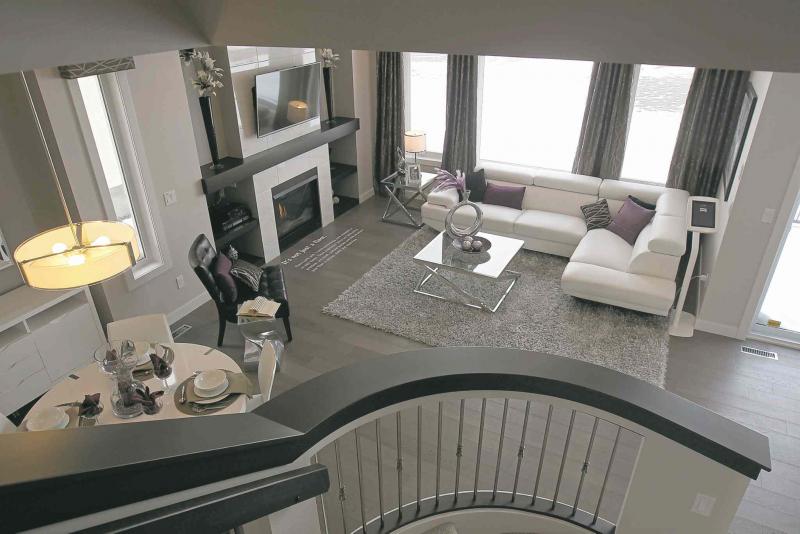New Homes
New Homes
CMHC housing market assessment misses mark
Last week, the Canada Mortgage and Housing Corporation (CMHC) released its third quarter housing market assessment.
The purpose of this document reveals its first basic problem. The only purpose of this report is to highlight evidence of problematic conditions.
For each of the 15 cities reviewed, there is a grand total of one paragraph dedicated to their entire housing industry.
According to this report, there is only one market in Canada (Hamilton) where demand significantly outpaces supply. Hamilton? Perhaps Torontonians are wanting to move south.
Winnipeg is now considered less problematic than it has been for the past two quarters. The accusations of over-valuation have subsided. This is a problematic category to me. The market determines over-valuation, not an analyst. If consumers consider the prices to be too high, they don't buy. If they offer less on a resale home and it sells, then that was the right price.
The Winnipeg market was labelled as a cautionary yellow again for moderate overbuilding. However, when I questioned CMHC representatives on this grade, it turns out there isn't overbuilding in single family homes. There isn't overbuilding in condominiums, row houses or townhouses. The overbuilding flagged by the analysts was in apartments. The entire Winnipeg housing industry was given a cautionary grade because there were 996 more apartments built in 2015 than 2014 -- mostly in response to the fact Winnipeg had the lowest apartment vacancy rate in Canada three years ago.
Housing market assessments are interesting, but they are not something that should be dominating the status of the housing market. The industry is far too important to be summarized in one paragraph and only four factors.
Mike Moore is president of the Manitoba Home Builders' Association.
New Homes
First-time home buyers share their experiences
In April 2015, the Canada Mortgage and Housing Corporation completed an online survey of 788 first-time home buyers. All respondents had purchased a home for the first time in the previous 12 months. (Note: this survey was national in scope -- so buying and borrowing habits may vary by region.)
The vast majority (83 per cent) of first-time buyers used online resources when looking at mortgage options. About half went to lender websites and a third went to broker sites. More than 80 per cent utilized the online mortgage calculators prevalent on these sites.
By far, the average first-time buyer was more influenced by a family member than any other source. This was followed by a real estate agent, mortgage broker and lender.
Surprisingly, less than half of all first-time buyers surveyed were offered other types of financial products (mortgage life insurance, lines of credit, bank accounts, TFSA, RRSP) when dealing with their mortgage professional.
Nationally, 55 per cent reported arranging a mortgage through a mortgage broker compared to 42 per cent for repeat buyers. In both cases, getting the best deal was the predominant criteria for selection. Mortgage brokers also played a significant role in first-time buyers switching financial institutions.
Most first-time buyers were satisfied with their mortgage professional and the advice they received, however, less than half indicated they strongly agreed they would use the same method or institution for their next transaction. This again indicates the buyer is going for the best deal as a prevailing factor. First-time buyers tend to be less confident than repeat buyers that they received the best deal possible. Of course, they also possess a lower understanding of the mortgage process.
This probably came from a feeling of uncertainty regarding the home-buying process and such post-buying costs as insurance, utilities, adjustments, repairs and various unforeseen costs.
In summary, the first-time buyer is going to need a little more hand-holding and guidance than the repeat buyer. They will also need a more follow-up and advice after the transaction is complete. However, I would disagree with the CMHC survey on one finding as it relates to the Manitoba market. Here we deal with people rather than numbers as opposed to some other Canadian centres and I would like to think that extra effort up front means a lifelong client in the end.
Mike Moore is president of the
Manitoba Home Builders' Association
New Homes
Affordability key to strong local housing market
As we start a new year, I thought it might be beneficial to look at what's happening, what could happen, and what should happen with housing in Winnipeg and throughout Manitoba.
I was delighted to hear of Canada's commitment recently to lower greenhouse gasses and become more energy efficient. We build Canada's most energy efficient homes in Manitoba and will continue to do so. Between 1990 and 2005, the energy efficiency of Manitoba homes increased by 21.6 per cent while cutting GHG emissions by 31.3 per cent. Manitoba Hydro's Power Smart for New Homes has been re-launched; Manitoba builders benefited from the Local Energy Efficiency Partnership process and Manitoba builders will continue to be at the forefront of energy efficiency.
A new building code will be reviewed this year. A very thorough review process is conducted by the Office of the Fire Commissioner and the Manitoba Building Standards Board with all parties having input before implementation. We have some unique weather and soil conditions in Manitoba which make any national review more regional in scope.
Manitoba's new home warranty legislation will be finalized sometime this year. The act has been passed and the regulations are close to being finished, but there are still a few significant areas to be corrected and finalized before being approved. When these are tweaked by both government and industry, all that will remain are the performance standards, most of which already exist.
The City of Winnipeg will have revised and updated Development Agreement Parameters before summer. This document has not been revised since 2002 and is the template to determine who pays for what in a new neighbourhood. Currently, the developer pays for all infrastructure costs within the development including roads, sewer, hydro, sidewalks, lights, trees, gas, streets, drainage and other amenities. You may recall that a previous city council attempted to implement an arbitrary tax on new homes, often called a new neighbour tax, without going through this review process. The provincial government rightly declared the random creation and imposition of new taxes was not within the purview of the city. Of course, given that 27.5 per cent of the cost of a new home consists of permits, fees and taxes that go to the three levels of government, it is fairly obvious that no new charges should be implemented without a full review being completed.
Affordability will remain the key focus of the Manitoba Home Builders Association in 2016 and beyond. Manitoba and Winnipeg have been attractive destinations to existing population, immigrants and those looking to return or relocate due to our housing costs and quality of living. Continued emphasis on ensuring that our young people and new citizens can afford to live here will be key in 2016. Time will tell if we can succeed on all levels.
Mike Moore is president of the Manitoba Home Builders' Association
New Homes
Manitoba's residential construction industry vital to the province
As 2015 draws to a close, the Manitoba Home Builders' Association (MHBA) wants to take this opportunity to recognize and thank those people who made this past year a success. The residential construction industry is a huge part of Manitoba's economy, accounting for a $3.8-billion impact, more than 25,000 jobs, and more than $1.3 billion in wages, generating hundreds of millions of dollars in government tax revenue.
Of course, initial kudos must go to the volunteers and staff that drive the MHBA. There are nine standing committees of the association with about 10 representatives per committee. That means 90 people are giving their time and expertise to the MHBA each year on a formal basis. Numerous companies recognize the importance of being involved in their professional association. It doesn't work without this kind of commitment.
The MHBA presents both large and small events. The spring and fall Parades of Homes are the largest and best run in Canada. More than 75,000 people participate in these two very public events. The Ask a Renovator booth at the Renovation Show and the renovation information seminar are additional popular information opportunities. The MHBA hosts housing forums, educational seminars, awards evenings, dinner meetings, golf and curling outings and a variety of other activities that encourage interaction and professional development among members. A huge thank you goes to all of the various sponsors, too many to list, but many of whom can be found in the individual categories of the MHBA website.
Legislation, policies, practices and procedures can be frustrating at the best of times. However, without full consultation, they are almost impossible. Recognition and thanks must go to the open-door policies of Premier Greg Selinger, deputy ministers and the administrative staff whose portfolios have a tremendous impact on the residential construction industry. Similarly, across the floor, Brian Pallister and Jon Gerrard ensure all sides are being heard when legislation strays from what is best for Manitobans. Mayor Brian Bowman, all of executive policy committee and council, the office of the chief administrative officer and everyone at Planning Property and Development work very hard under trying circumstances to keep Winnipeg vibrant and prosperous. The MHBA is the envy of other major urban centre-based housing associations, owing to the co-operative approach taken by the City of Winnipeg.
Local media ask tough but fair questions and report things as they are; fellow industry associations bond together for a common cause; and let's never forget those charitable organizations (especially Habitat and Variety) at this time of year who are so close to our hearts and recognize the importance of housing.
Wishing everyone a most happy 2016.
Mike Moore is president of the Manitoba Home Builders' Association

